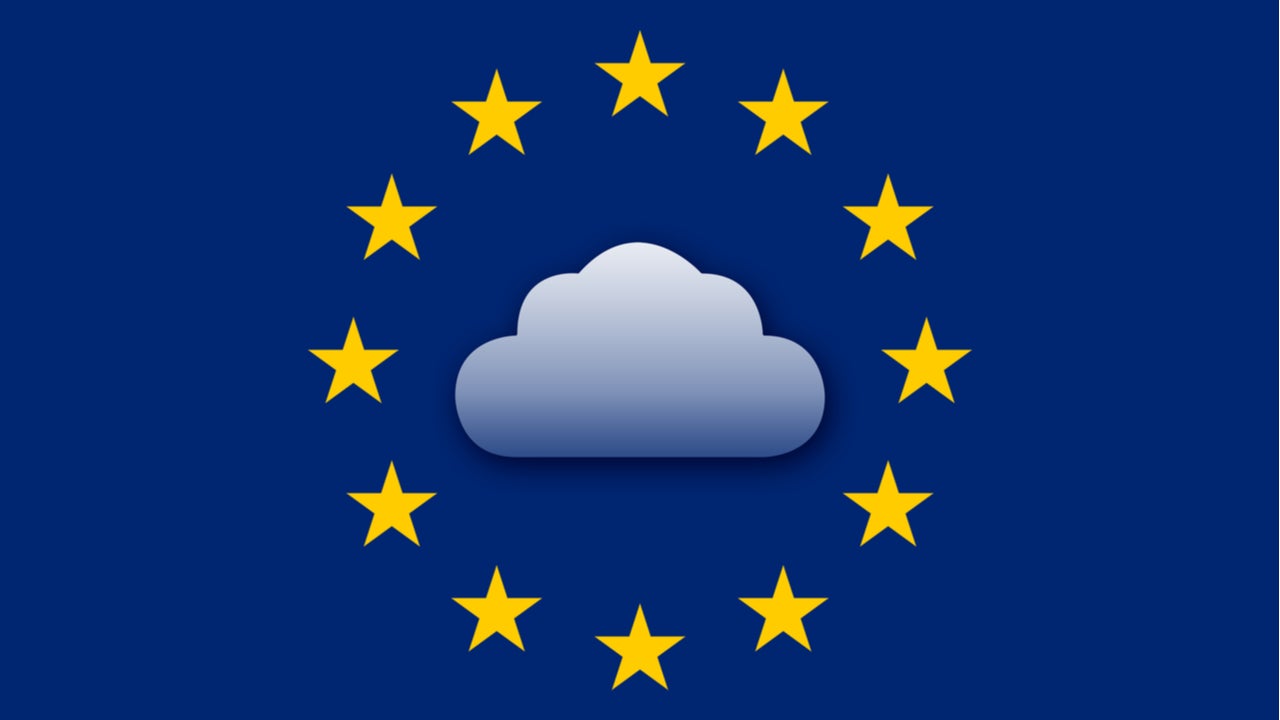
The economic and finance ministers of France and Germany have announced a new project – GAIA-X – designed to create a European alternative to the global hyperscale public cloud platforms.
With massive corporations headquartered in the United States and China dominating the market which supplies an increasingly large proportion of European companies’ tech requirements, they viewed it as something of a strategic priority.
Almost two dozen industry players joined up as founding members to invest in the project’s development, but this week two of them—France’s OVHcloud and Germany’s T-Systems, part of Deutsche Telekom—accelerated the timeline by promising a joint approach to new European-built and managed public cloud infrastructure, to be ready by next year.
‘Outsider’ technology has become an issue in Europe
There has long been sentiment in Europe that it is far too dependent on technology developed and owned outside the region. One reason is data sovereignty, an issue that has forced US-based hyperscalers like AWS and Microsoft to create solutions compatible with the EU’s GDPR and national data privacy regulations.
Still at issue are potential conflicts between EU laws and the new US Cloud Act, which allows the US to create international agreements with other nations, enabling law-enforcement agencies on both sides of the Atlantic to gain access to data stored on either side, as part of criminal investigations.
An increasing number of European companies, the theory goes, would rather not subject their proprietary data (or their customers’ data) to any additional exposure to US courts by storing it in US-owned cloud data centers, even if they are located in Amsterdam or Dublin.
How well do you really know your competitors?
Access the most comprehensive Company Profiles on the market, powered by GlobalData. Save hours of research. Gain competitive edge.

Thank you!
Your download email will arrive shortly
Not ready to buy yet? Download a free sample
We are confident about the unique quality of our Company Profiles. However, we want you to make the most beneficial decision for your business, so we offer a free sample that you can download by submitting the below form
By GlobalDataBut there are other drivers, too. Europe is intensely interconnected, benefitting from collaborative research and industrial programs in any number of domains. Europe makes extensive investments in digital technologies and innovative business models, and so the sponsors of GAIA-X point out that it must also ensure that those who drive innovations forward are also those who benefit in economic terms—therefore securing value creation (and employment) in Europe.
GAIA-X could offer a trusted cloud solution for Europe
By developing the foundations for a federated, open data infrastructure based on European values, they say, GAIA-X would connect centralised and decentralised infrastructures in order to turn them into a homogeneous, user-friendly system. The resulting federated form of data infrastructure strengthens the ability to both access and share data securely and confidently within an integrated European economy.
OVHcloud is one the larger European providers of cloud infrastructure as a service, but that isn’t saying a whole lot as it remains quite some distance away from its goal of rivalling hyperscale giants like AWS, Microsoft Azure, Google, and Alibaba. However, it brings to the table a truly European infrastructure, including its own server factories and an innovative water-cooled data center solution that can help meet the sustainability goals of European clients.
Deutsche Telekom (DT), for its part, is known for two things in the German cloud market: its enormous state-of-the-art data centers near Madgeburg in Saxony-Anhalt where it offers super-secure cloud hosting for Microsoft and other users of cloud infrastructure, and its own Open Telekom Cloud service platform, which is built on infrastructure and software sourced from Huawei in a cost-effective revenue-sharing model.
Both companies have previously supported efforts to bring regional cloud providers together to form European standards and cooperate on strengthening native European technology, so it makes sense that OVHcloud and DT’s T-Systems are the first to form a partnership around the principles of the GAIA-X initiative to develop a trusted public cloud for Europe. They are positioning it as a solution designed especially for industry sectors that are particularly sensitive to data sovereignty and GDPR compliance, including the public sector and private enterprises operating critical infrastructures.
New initiative is driven by governments
The deal is something of a coup for OVHcloud, since T-Systems is a much larger partner operating in a complementary footprint which will lend it new credibility in serving large enterprise and public sector clients in Germany, France, and elsewhere in the EU. It also appears to be a new direction for T-Systems in public cloud, representing a clear alternative to its Open Telekom Cloud platform, which is increasingly unlikely to attract customers from these segments due to the political and perceived security ramifications of the Huawei infrastructure on which it is built.
That said, GAIA-X remains a theory for now, one which some in the industry doubt has meaningful organic demand behind it. While it is true that France and Germany (and other European countries) could mandate requirements for hosting public sector and critical infrastructure in compliant native clouds, the market momentum enjoyed by AWS, Microsoft and Google appears unstoppable as they build increasingly strong ties across the continent, and increasingly form the basis of new critical digital infrastructure for organisations ranging from Deutsche Bahn to Telefonica.
Backed by European tech providers, the GAIA-X initiative, for now, remains driven by governments at the policy level; it is up to actual public sector agencies and private sector enterprises operating critical infrastructure to determine whether solutions such as OVHcloud and T-Systems’ are compelling enough to serve their hyperscale cloud needs.





Related Company Profiles
Microsoft Corp
Deutsche Telekom AG
Google LLC
Deutsche Bahn AG